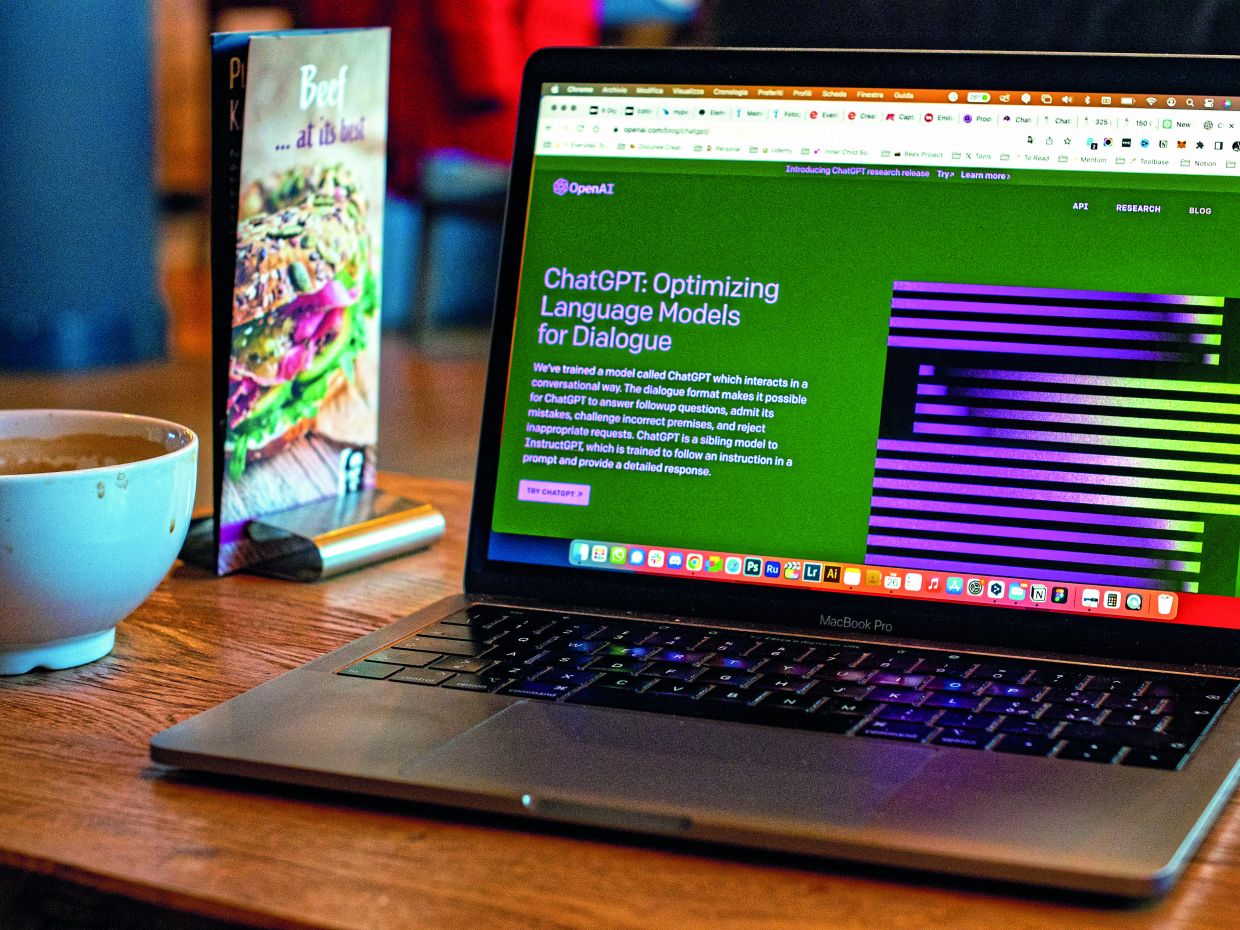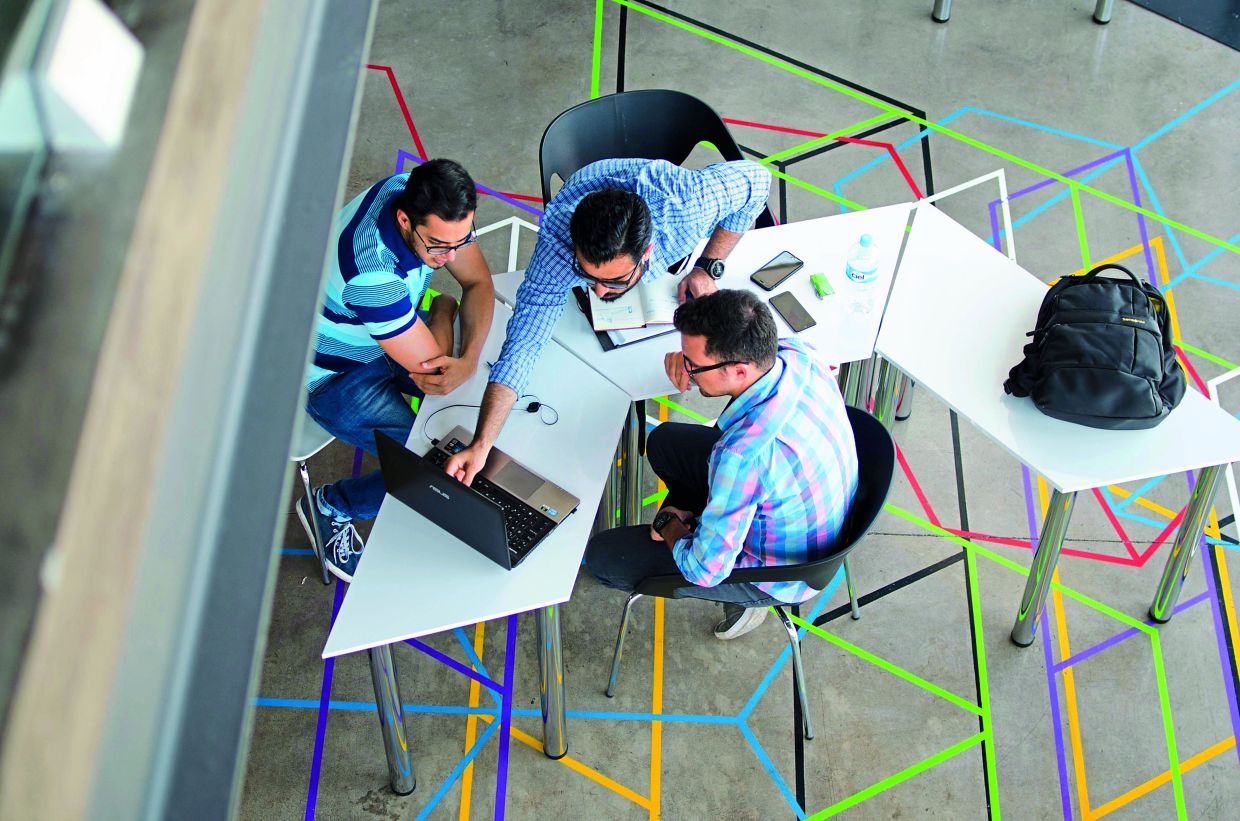Tianyi Jiang, co-founder and CEO of AvePoint, says with the advent of AI, there exists a substantial opportunity to establish a global learning community and revolutionise learning experiences for the new generation. – AvePoint
AI (artificial intelligence) tools, exemplified by advancements like ChatGPT, have significantly influenced various professional domains, prompting an industry-wide discourse on their overall impact. One area that has been a key focus with regards to the application of this technology is education. According to Unesco, AI has the potential to address some of the biggest challenges in education today.
It will no doubt impact the segment by innovating teaching and learning practices, and accelerate progress. However, with rapid technological developments, it also brings numerous risks and challenges. Recognising this, a central question is often raised — can AI effectively contribute to supporting continuous learning and fostering growth across diverse sectors?
The Malaysian government emphasises this belief with the programme ‘AI for Rakyat,’ signalling an active encouragement for the public to embrace the evolving landscape of education. Launched in January, the self-learning online programme is crafted to enhance public understanding and awareness of AI, and to narrow the digital literacy gap amongst Malaysians.
“Institutions worldwide increasingly recognise the potential of AI to revolutionise education,” states Tianyi Jiang, co-founder and CEO of AvePoint. “Technology is changing the educational landscape by creating an environment that nurtures creativity, encourages collaboration and tailors learning experiences to individual needs.”
Redefining education
Jiang opines that through the advent of interactive digital platforms and the use of AI, technology is not only refining traditional teaching approaches but also redefining the very essence of educational objectives. As a leading global Software as a Service (SaaS) learning solutions provider, AvePoint stands at the forefront of EdTech (educational technology) and advancing the digital learning ecosystem.
“We’re driven to continually explore and develop cutting-edge AI-driven learning solutions,” states Jiang. “We not only embrace AI but we also prioritise trust, strategic integration and the human element. Through ongoing research and development initiatives, AvePoint is dedicated to pushing the boundaries of what is possible in the realm of education technology.”
One of the ways the company has utilised AI in its platforms is to use the technology to auto generate question and answer pairs from any information source. “This aids educators in lesson preparation and provides a fun element in class for live quizzes on topics learnt,” explains Jiang.
“AI is also heavily adopted in the exam invigilation process, to help exam admins and invigilators detect behaviour that breaches exam inte- grity, which is especially helpful in larger student-to-invigilator ratios, aiding administration productivity. This is especially useful in institutions moving towards hybrid (remote or BYOD [bring your own device]) assessments, where the exam is digitally administered and where online activity needs to be monitored in an auditable and responsible manner.”
Jiang states by enabling customised learning experiences and offering a wide array of resources, technology is able to enhance both learner engagement and academic success.
“The positive influence of technology on educational outcomes is becoming increasingly apparent, as the commitment to harnessing technology for educational purposes grows bigger. The collaboration between technology and education holds great promise for improving the learning process.”
Mitigating threats
No doubt as institutions modernise learning for the new generation of learners, such technology can be used to trial and adjust new learning experiences for the community to balance modern expectations and exam effectiveness. However, there are ethical questions being raised about biasness, inappropriate use and plagiarism with the use of AI.
Jiang opines that in the dynamic landscape of 2024, AI’s advancements present exhilarating prospects but it is prudent to effectively navigate the tension between the technology’s rapid evolution and the imperative for cautious implementation to mitigate potential harm, which remains a paramount challenge.
“Issues such as the deployment of plagiarism detection algorithms underscore ethical dilemmas concerning surveillance and privacy in educational environments, as students increasingly rely on AI-driven tools like ChatGPT,” he explains.
He also adds that Malaysia has taken proactive steps by establishing a robust framework for AI governance and code of ethics.
“Motivated by the burgeoning interest of AI businesses expanding their horizons, the government has launched the National Artificial Intelligence Roadmap (AI-Rmap) 2021-2025, under the aegis of the Ministry of Science, Technology, and Innovation (MOSTI),” he tell us.
“This strategic road-map integrates the Seven Principles of Responsible AI, delineating guidelines for fostering trustworthy and ethical AI solutions to safeguard individual rights and privacy. Such mea-sures are indispensable for instilling trust in AI systems, particularly in critical domains like education, where pivotal decisions impact lives and livelihoods,” he adds.
“This is evidence that we need to carefully consider the limitations and the appropriate use of AI in educational contexts. Rather than implementing AI for the sake of novelty, educators should identify areas where AI can genuinely add value. Striking an equilibrium between AI-driven efficiency and preserving the human element in education is pivotal to ensuring students receive a comprehensive learning experience.”
Looking to the future
Beyond its current scope, AI is destined to transform the education sphere whilst empowering educators, administrators and policymakers to make data-driven decisions about curriculum design, instructional strategies and resource allocation. “By analysing vast amounts of educational data, AI will identify trends, patterns and insights to inform continuous improvement efforts across the education system,” elaborates Jiang.
“Updated AI algorithms will be developed to increase its capabilities to analyse student data and provide personalised learning experiences tailored to individual needs, learning styles and preferences. This one-on-one mechanism will be more prevalent in the global learning community. This will enable educators to deliver targeted instruction, remediation and enrichment activities, ultimately optimising student engagement and achievement.”
The AvePoint CEO also believes that we will also see AI language translational engines augmenting cross-border learning where native languages differ across learners. “AI is also supporting more resilient assessment methods, through proctoring and enhancing auto-marking, thereby reducing biasness and enhancing productivity for education administrators.”
Ultimately though, Jiang says that advanced technology has the potential to go beyond borders in education. “With the advent of AI, there exists a substantial opportunity to establish a global learning community and revolutionise learning experiences for the new generation. AI can serve as a foundational tool in creating this community by facilitating seamless communication and collaboration among learners and educators across different regions.”
He adds that by accommodating the diverse learning styles of employees, including those with special needs, innovative EdTech solutions contribute to the establishment of a more inclusive learning environment.
“This accessibility can benefit those who are looking for a seamless solution into their learning and development, and can also enhance the continued learning of those with disabilities. This represents a significant step toward building a global learning community and advancing the evolution of learning experiences for future generations.”
“With the advent of AI, there exists a substantial opportunity to establish a global learning community and revolutionise learning experiences for the new generation.”
This article first appeared in Star Biz7 weekly edition.







